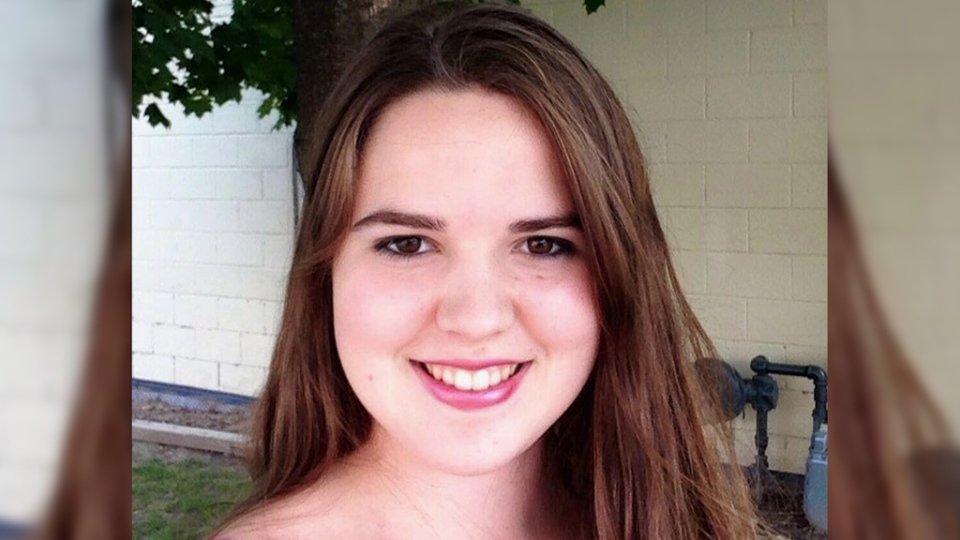
It’s a sad headline: “Friends of girl, 18, with leukemia sign her casket with loving messages in a final goodbye after she died waiting for a hospital bed during a shortage in Canada.”
Recently, Laura Hillier, 18, died after waiting for a bone marrow transplant during a hospital bed shortage in Canada, despite having willing donors available.
An Ontario hospital said it could only do five transplants a month and there were about 30 people who were waiting to have the procedure done.
At her funeral, friends and family signed her casket with loving messages.
The Hillier family is now fighting in Laura’s memory to end “deadly” wait times for hospital beds in Canada.
With everyone from Donald Trump to Bernie Sanders, the idea of single-payer, “Medicare for all” insurance is gaining steam.
Yet Canada already has such a system. How well did it work out for Laura Hillier?
Single-payer health insurance is based on a fantasy. Like all fantasies, it involves over-simplifications, unintended consequences and outright evasions.
People who applaud Bernie Sanders’ call for national health insurance smugly proclaim, “Health care should not be a commodity. It should be a right. If you have a right to life, you have a right to health care.” They equivocate on the right to life. Life is a given. It’s a primary; a fact of reality. Health care is not. In order to receive health care, somebody has to provide it. Even if doctors did not want payment for their services, you’d still have to wait for a doctor to provide those services. When you say, “I have a right to health care,” you’re not saying the same thing as, “I have a right to keep on breathing, and to sustain my life through my own efforts.” When you say you have a right to health care, you’re actually saying, “I have a right to make somebody else sustain my life.” You do not want to admit you’re implying this, but you absolutely and irrefutably are.
Some people fantasize of a world without profit and capitalism. Bernie Sanders, and his sadly clueless followers, fantasize of a world without money. On that premise, it makes sense they would fantasize of medical care without money or profit involved. But when you take money out of medical care, you take out a bunch of other things upon which Laura Hillier’s very life depended. You take away profit; you take away incentive; you take away motivation; you take away the productive attitude which makes goods and services plentiful in free markets, and scarce in contexts where we have removed profit, ownership and capitalism from the equation.
Keep in mind that Laura Hillier did not die because the bone marrow for her transplant was unavailable. She died because hospital beds where the transplant could be done were unavailable. Socialized medicine maximizes accessibility by making health care free, and minimizes profit and well-being for doctors and hospitals. Most of us would not do this to the people who cut our hair, but we willingly contemplate doing that to the people who will fix our organs, cure our diseases or alleviate our pain. In a for-profit market, there would have been plenty of hospital beds for Laura Hillier. In a for-profit market, charity – while not guaranteed – would have been likely and possible. But when there’s a shortage of beds, the fact that health care is “free” does you precious little good, especially when minutes or hours count.
Laura Hillier’s family wants to fight deadly wait times. But how do you fight deadly wait times? By improving efficiency, by raising accountability, and by increasing the motivation of people who provide beds, nursing and doctoring with greater incentive for doing so. How else can we do that other than through capitalism? Capitalism does not only mean profit. It mostly means freedom. It means freedom for the people who provide your medical care to negotiate with you—the actual or potential customer—on terms you find reasonable and possible, to mutual benefit. Capitalism does not force anybody to do anything; but it does allow unlimited freedom (excluding fraud) for both patients and providers of medical care to do what best suits their needs.
I don’t know why this is so frightening. Doctors and nurses usually want to help people, in addition to making a living. They sincerely wish to be accountable to their patients. If this were not the case, then there’s nothing socialized medicine could do to resolve it. Politicians and bureaucrats have no such accountability, and usually act as if they do not feel it. Under socialized medicine, it’s bureaucratic bean counters and morally unaccountable politicians deciding how many beds are available and where, rather than customers and providers via a free marketplace. Laura Hillier’s unnecessary death shows just how much that concept matters in practice.
I have found it nearly impossible to convince most people that capitalism is safer than socialism, even for medicine. How much safer was Laura Hillier under socialized medicine? Instead of fostering more socialism, we ought to be doing exactly the opposite.
Follow Dr. Hurd on Facebook. Search under “Michael Hurd” (Rehoboth Beach DE). Get up-to-the-minute postings, recommended articles and links, and engage in back-and-forth discussion with Dr. Hurd on topics of interest. Also follow Dr. Hurd on Twitter at @MichaelJHurd1
Dr. Hurd is now a Newsmax Insider! Check out his new column here.
